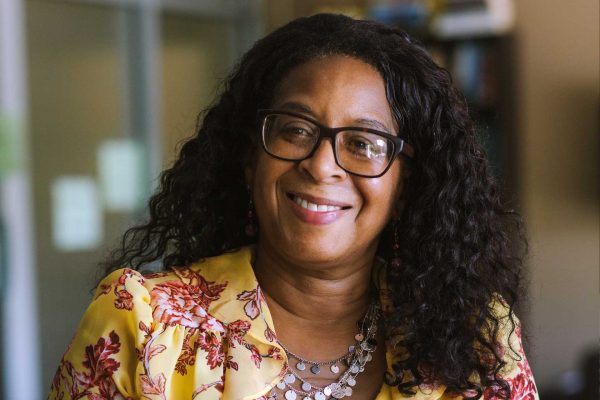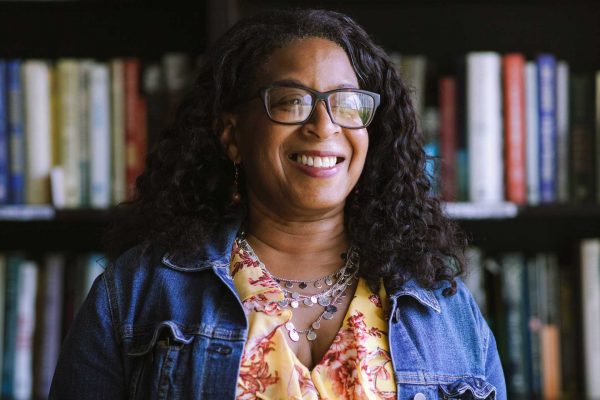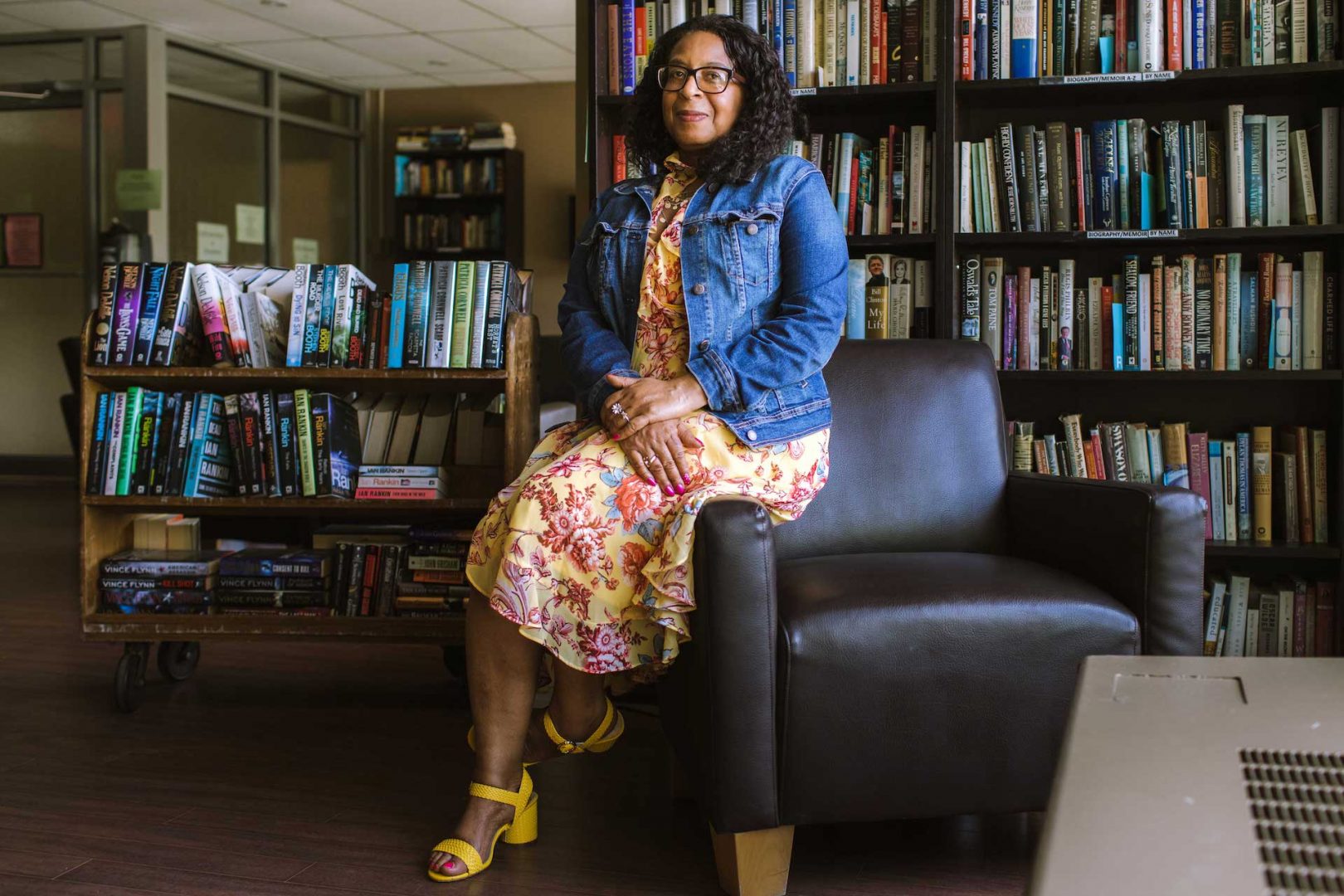By Donna Bailey Nurse Photography by Max Power Ahead of hosting Luminato Festival’s two-night celebration of Toni Morrison and Black women writers, leading Canadian literary critic Donna Bailey Nurse spoke with panelist Dawnie Walton about…
By NowPlayingToronto
By Donna Bailey Nurse
Photography by Max Power
Donna Bailey Nurse (DBN): Tell us a little about the rock duo at the centre of your novel, The Final Revival of Opal & Nev.
Dawnie Walton (DW): On the surface, they have little in common — Opal is a Black American woman and Nev is a white Englishman — but in terms of their ambition and their senses of themselves as misfits, they are kindred spirits. They start off in a familiar dynamic we’ve seen in real rock history, with Opal providing background vocals for singer-songwriter Nev. But after they land in national headlines following a racist killing at a 1971 concert, they come out a radically different act — a true duo collaborating to make raucous, provocative, political protopunk. I also imagined them, especially Opal, as always a bit ahead of the times.
 DBN: Opal comes of age in Detroit in the 1960s and Nev comes of age in Birmingham, U.K., around the same time. Both hail from working-class towns with thriving musical scenes. What is the link between working class experience and memorable music?
DBN: Opal comes of age in Detroit in the 1960s and Nev comes of age in Birmingham, U.K., around the same time. Both hail from working-class towns with thriving musical scenes. What is the link between working class experience and memorable music?
DW: I don’t know that working-class cities naturally have more creative talent, but I do think those environments foster the grit, hunger, ingenuity, and DIY mindset that help people transform talent into triumph. For instance, with Detroit, I was thinking of Motown, and how Berry Gordy and his many Black artists created a legacy all their own. But also, I was thinking of the punk music out of that town — the Stooges, MC5, and a band of Black brothers called Death — and how there’s a political mindset, an unrest, a critical attitude on society coming naturally through the music that you might not have en masse elsewhere. What was tricky about Nev is that although he grows up in a working-class city, as a boy he actually wants for nothing — including music lessons, instruments, studio time, et cetera. And yet, because his father is self-made and not high-born and because there’s often snobbery in posher areas of England toward Brummies, as they’re called, Nev still can fit the role of scrappy underdog. And that role will always play well in rock.
DBN: Many African American novels explore the subject of “the dream deferred.” But Opal & Nev examines the subject of “the dream come true.” What did you want to say about the fact that you can sometimes get what you want?
DW: Of course it’s hard to feel bad for celebrities; they seem to have the money, the adulation, and more. But I guess what I wanted to show with Opal is that fame for her is a lot more complicated than she ever realized. The spotlight doesn’t totally come on her terms, in the way she’d naively imagined. At age 22, she’s thrust into a role that has her replaying a trauma and after a while, she feels stuck in that loop. And yet that same role also gives her something quite powerful — a platform, a microphone, an ability to influence. So, in making her choices for how to carry that fame, she’s always calculating the pluses and minuses.
DBN: Black women are virtually absent from mainstream history just as they are virtually absent from rock ‘n’ roll history — even though they were always singing in plain sight. Why do you feel they were so overlooked?
DW: The simple answer: The intersection of racism plus sexism. In rock history especially, Black women were often positioned to play the background and support the main act, usually white men. Combine that with the typical American plunder of Black culture — in this case, gospel and blues — and you get a lot of inequities in terms of who rockets to fame and who does not. It’s very hard to succeed in a game whose rules are rigged to advantage somebody else.
DBN: Opal stands out because of her unusual voice, her dark skin, her bald head, and her charismatic bearing. At the same time, she is reminiscent of other major African American heroines — including Pecola of Toni Morrison’s The Bluest Eye — who describe themselves as dark, ugly, and unwanted. Can you talk about the relationship between these characters?
DW: To understand the way that Pecola Breedlove internalizes the colourist dogma that’s dumped upon her is the most heartbreaking reading experience I’ve ever had. In building Opal as a character who faces similar hatred and bias at Pecola’s age, I wanted to acknowledge that those things exist as obstacles. But I also wanted to dream a better outcome for her. I often say that I imagined Opal in some ways as a superhero. This is definitely one of those aspects in which she is extraordinary: That she could face all this and still feel power and love for herself.
I want to actually reference a couple different Morrison characters who maybe have more of a connection to Opal: Pilate from Song of Solomon, who is an outcast for many surface things (her missing navel and that weird earring she wears) but boldly goes in search of her own answers and happiness; and Sula, who is unashamed of her own desires and flaws despite anyone else’s judgment.
DBN: The novel is structured as an oral history of Opal and Nev’s career. It is made up of individual interviews that Sunny, a magazine editor, records. Why did you choose to tell this history in so collective and communal a manner?
DW: I wanted to give Opal and Nev instant icon status. One way to do that was to have lots of different people from different orbits analyzing them; trading stories; creating, together, a mythology. I also love how, in oral history, memories contradict each other, and so the reader is instantly engaged trying to piece together what’s true. Plus, it’s just fun to write in wildly different and colourful voices!
DBN: You worked in journalism before you launched a career as a novelist. What journalistic techniques did you use to make this novel feel so real and immediate?
DW: As a journalist, I am constantly interrogating situations to gather context. Even when writing fiction, there are many questions I ask myself past “What is this story?” and “Who are these people?” Like: What factors led to the choices here? What are the stakes for everyone? How do place and time affect these people? Why does this story I’m trying to tell matter, not only to my characters but also to readers? Those questions lead to a lot of deep thinking and, of course, a lot of research. For this book, the context of the political times was especially compelling for both timelines I explore (1970s and 2015-16).
 DBN: Tell me a little about the place of music in your life growing up in Jacksonville, Fla. How has it shaped you? Made you who you are? Why do you think music means so much to human beings?
DBN: Tell me a little about the place of music in your life growing up in Jacksonville, Fla. How has it shaped you? Made you who you are? Why do you think music means so much to human beings?
DW: As a small child, I was surrounded by music and records of the jazz vocalists my grandparents loved, plus the Stevie Wonder and Marvin Gaye of my parents’ youth. By the time I was entering my teens, Gen X was making a lot of noise. It was the golden age of hip-hop and then alternative music sank its teeth into me. Something about the taboo feel of it, the loudness of the sound, and the obscurity of the lyrics fascinated me and often provoked very emotional responses. In Jacksonville, there used to be an all-ages dance club called Einstein a Go-Go, where angsty, alt-y kids from all over the city would spend weekend nights. In a lot of ways, I felt very at home there. And in my actual home, I was still rooted in Black musical traditions, so I kept an open mind and heart always.
Not to show my age here, but music today feels a lot more ephemeral, living so freely and abundantly in the cloud. In a lot of ways that’s great because it is more accessible and people can experiment with their taste by sampling whatever they want. But back then, music touched every bit of my little life. It influenced everything, from the way I dressed to my political outlook to the company I kept, and it drove a lot of the choices I made about what kind of person I did and did not want to be. I should note that wasn’t always a positive thing, especially considering there weren’t many Black girls who dug or made alternative music, and yet I still smile thinking back. I still remember that new albums came out on Tuesdays, and that I only had so much allowance to spend; I still remember holding a cassette or CD in my hands, poring over the liner notes and lyrics; I still remember the video show 120 Minutes that aired on MTV late Sunday nights, and taping it to watch with friends. Music, for me, wasn’t merely a soundtrack that happened to be playing in the background; it sits at the centre of my most vivid memories.
DBN: You sometimes turn to the wisdom of Toni Morrison when you are writing. What piece of advice do you draw upon most?
DW: Well, there are different gems for different moments! Anything she ever said about resisting the white gaze has made me a bolder and more confident writer, so I watch those Charlie Rose interview clips on YouTube all the time. But now, as I’m struggling to dive into a new idea and figure out what can sustain for the length of a novel, I’ve repeatedly opened a Morrison quote that was shared to social media: “I am interested in the complexity, the vulnerability of an idea. It is not ‘this is what I believe,’ because that would not be a book, just a tract. A book is ‘this may be what I believe, but suppose I am wrong… what could it be?’” That is really challenging me to open my mind and explore.
DBN: What are you most looking forward to about participating in Luminato’s Celebration of Toni Morrison and Black Women Writers in Toronto?
DW: I am always so thrilled and inspired to build community with other Black women writers, and to witness the different ways we descend from Ms. Morrison and other literary ancestors. I love writing, and at the same time it can often feel like impossible, lonely work. But to be in a space where we can see and celebrate each other, that gives me just the boost I need.
On June 16 and 17, join Donna Bailey Nurse for a talk show-style evening celebrating the legacy of Toni Morrison with a lineup of acclaimed Black women writers — including Dawnie Walton. Presented by Luminato, Beloved: A Celebration of Toni Morrison and Black Women Writers takes place at the Elgin and Winter Garden Theatre Centre.

